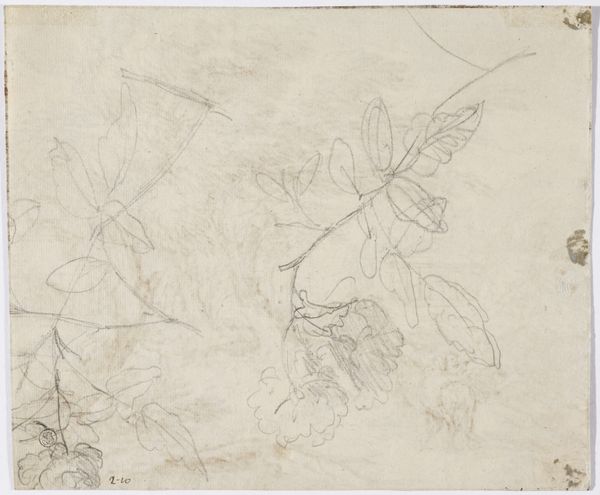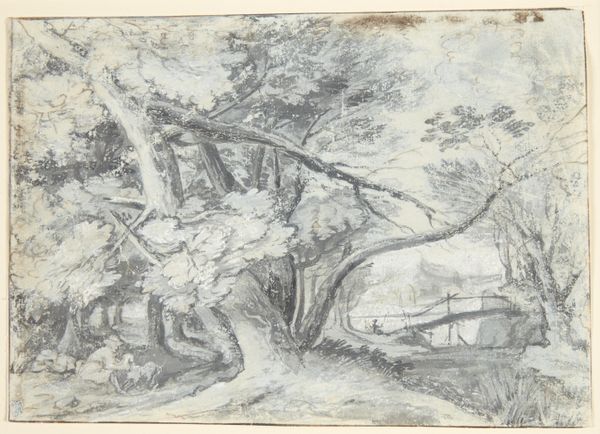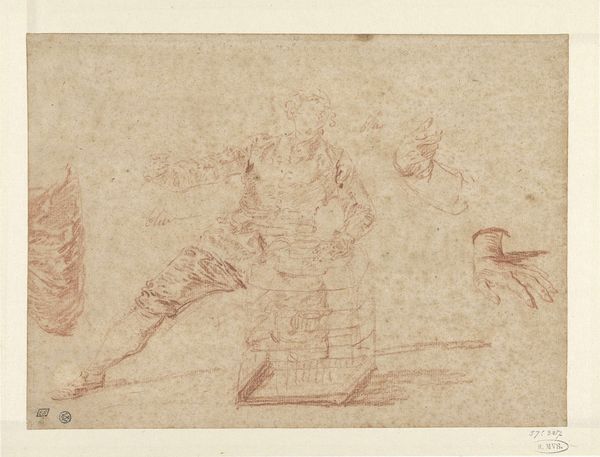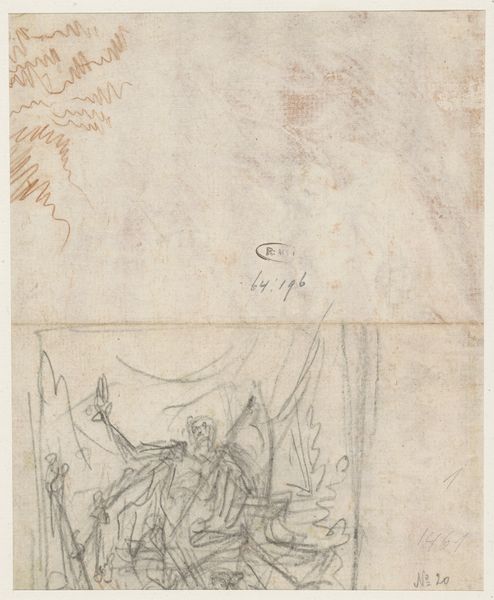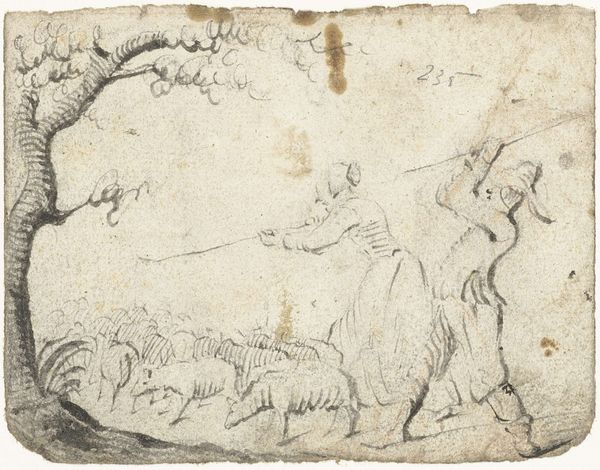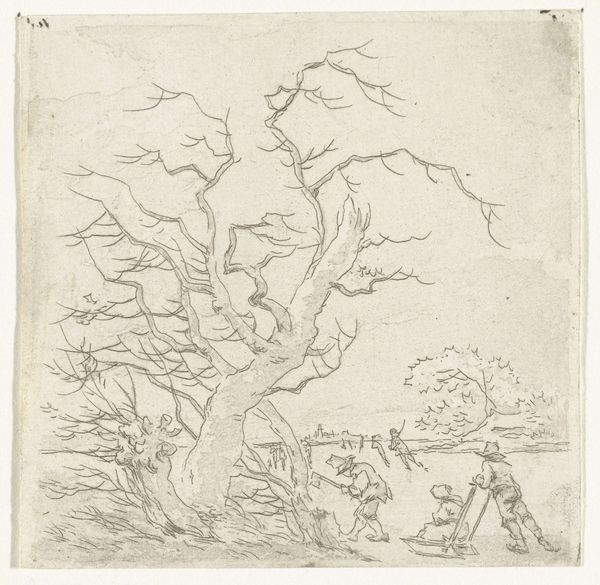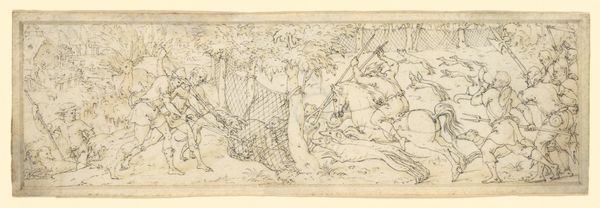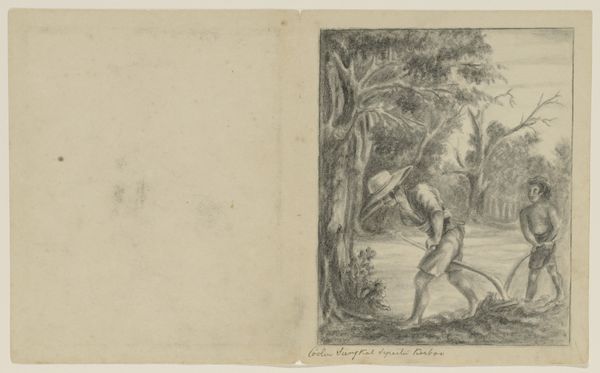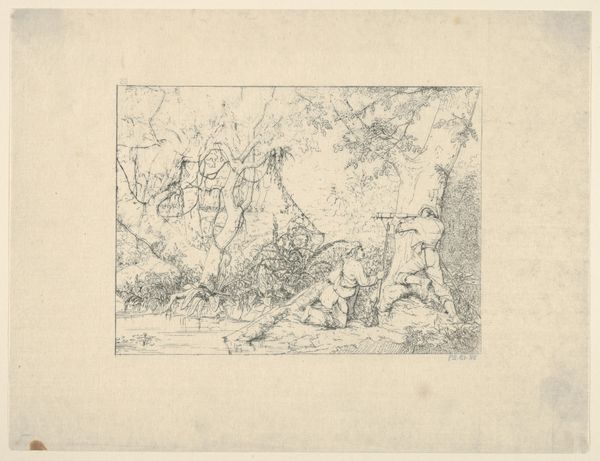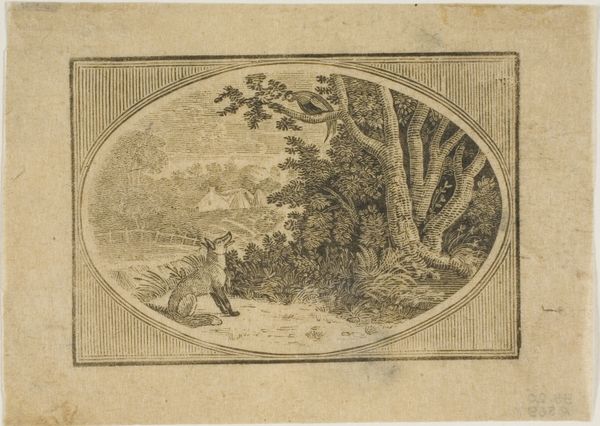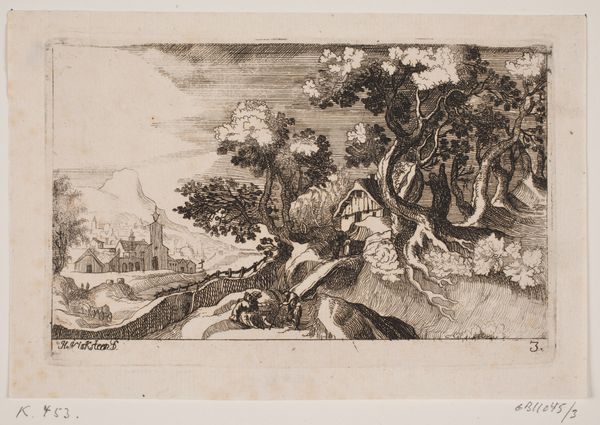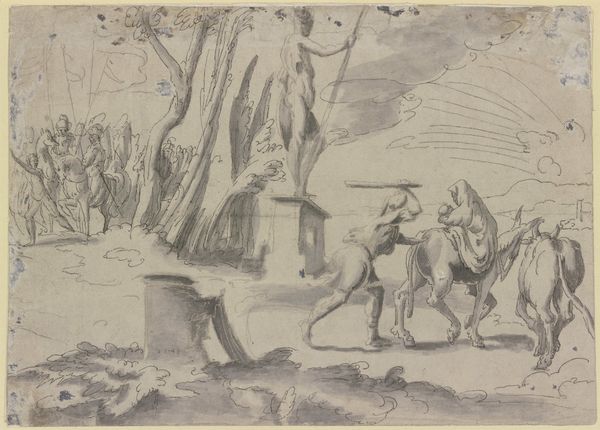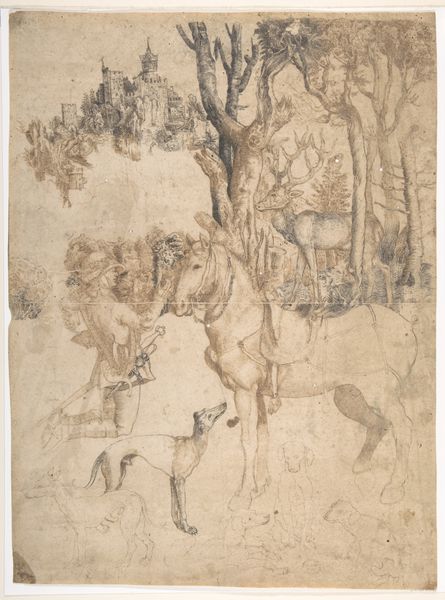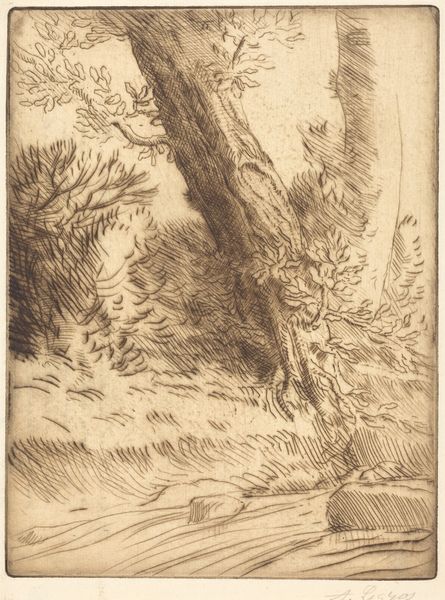
etching
#
portrait
#
dutch-golden-age
#
etching
#
landscape
#
etching
#
line
#
realism
Dimensions: height 72 mm, width 95 mm
Copyright: Rijks Museum: Open Domain
Curator: Here we have Paulus Potter's "Head of a Cow," an etching from sometime between 1635 and 1654. It's currently housed here at the Rijksmuseum. Editor: It possesses a rather melancholic feel, doesn’t it? The muted palette and the subject’s downcast gaze evoke a certain pensiveness, despite its rustic nature. Curator: I'm particularly drawn to Potter's sophisticated deployment of line. Note how the density of the etching varies across the composition, building form and shadow with remarkable subtlety, notably around the trunk of the tree. Editor: The tree, as you say, serves as an interesting anchoring element, but consider the cow itself. Across cultures, the bovine is such a layered symbol – fertility, nourishment, even sacrifice. Here, she almost seems burdened by this symbolic weight. The halter hints at domestication, a loss of wildness and freedom, subtly infusing the scene. Curator: Perhaps, but consider also the formal qualities. The diagonal line created by the cow's body, mirrored by the slope of the landscape in the background, generates a dynamic tension within a static scene. It disrupts any simple reading of passivity or confinement. Editor: Indeed. I see your point about that diagonal. The inclusion of the horizon line offers a breadth to the composition that gives it room to breathe. Even with a limited, austere palette, the work conveys a very detailed expression through very considered choices. Curator: Precisely. The success of the etching is built through these precise relationships of the internal and external elements within the framed borders. It's a subtle masterpiece of graphic constraint. Editor: So, beyond a simple study of rural life, Potter's cow also holds these quiet dialogues between symbolism, form and composition, adding layers that linger long after a cursory glance.
Comments
No comments
Be the first to comment and join the conversation on the ultimate creative platform.
